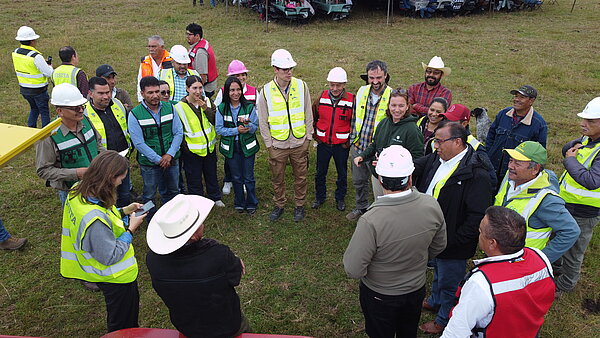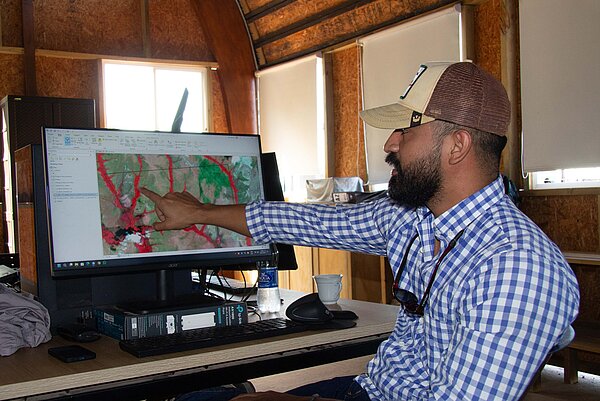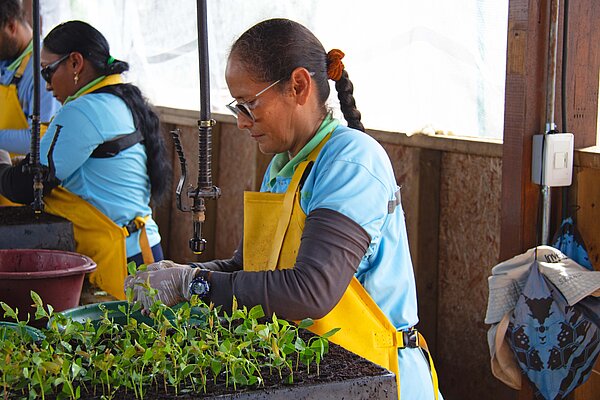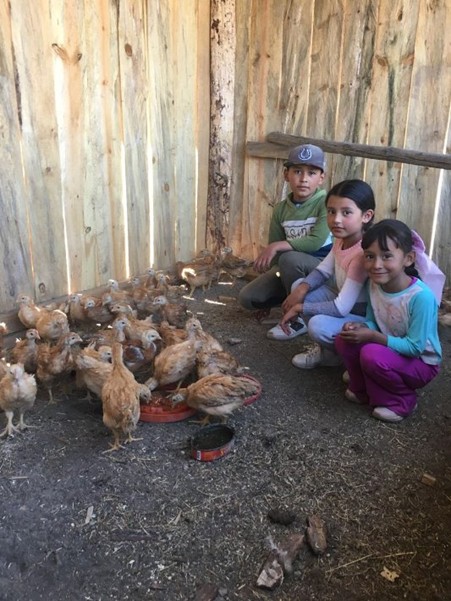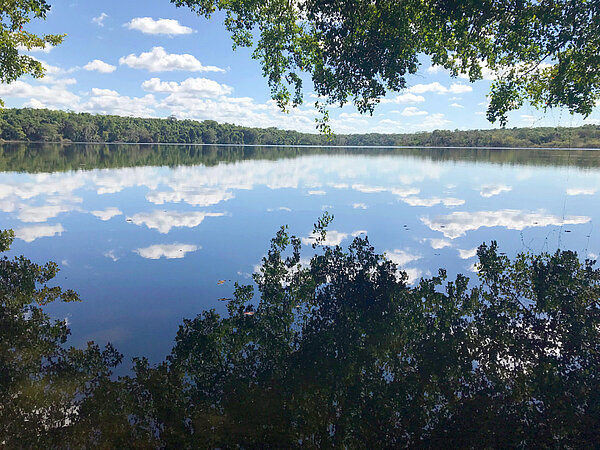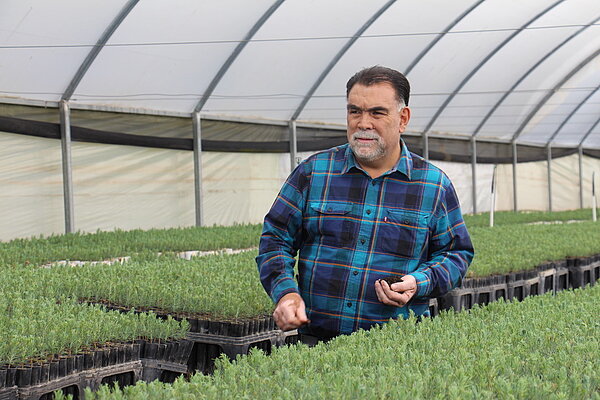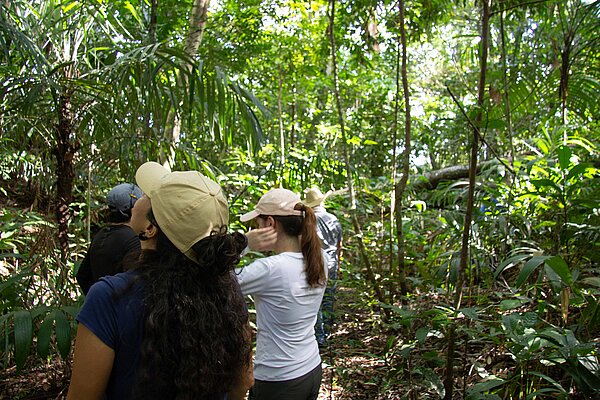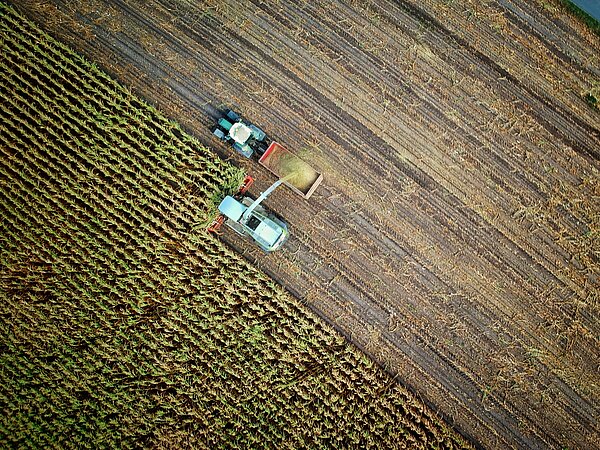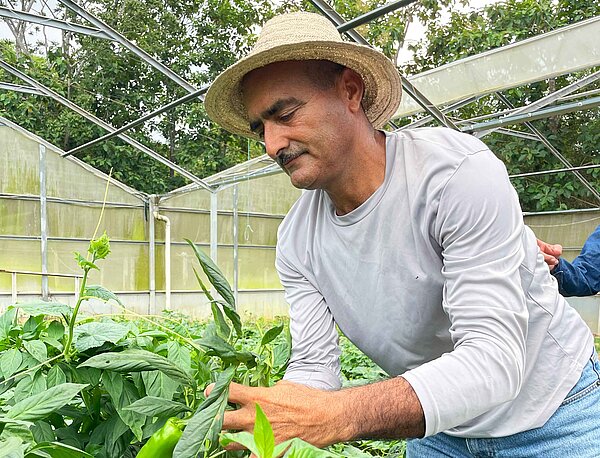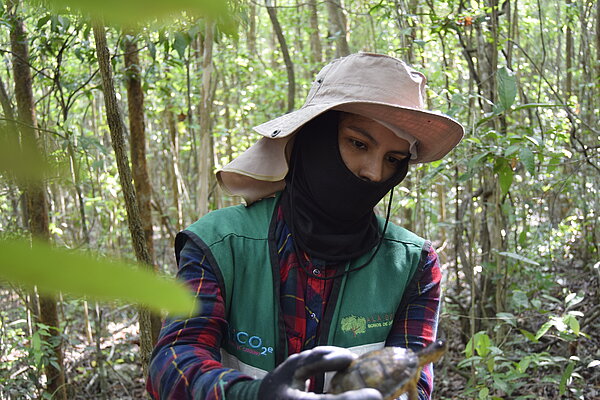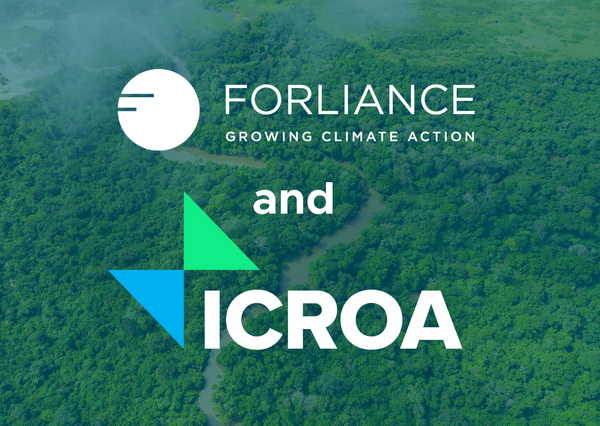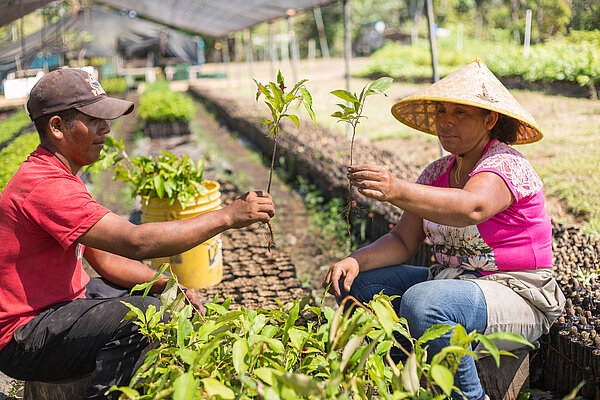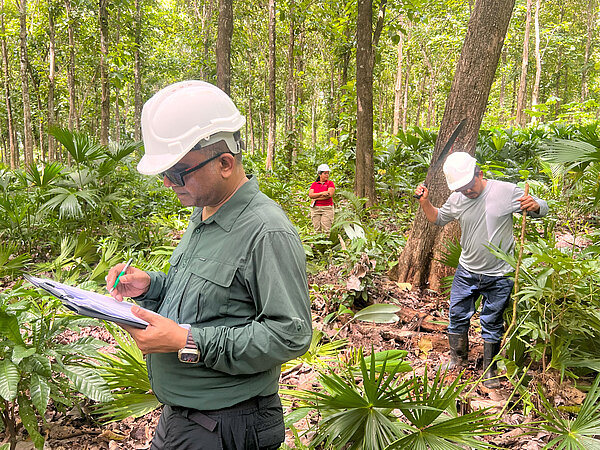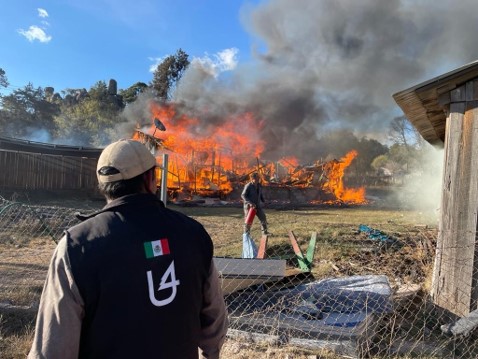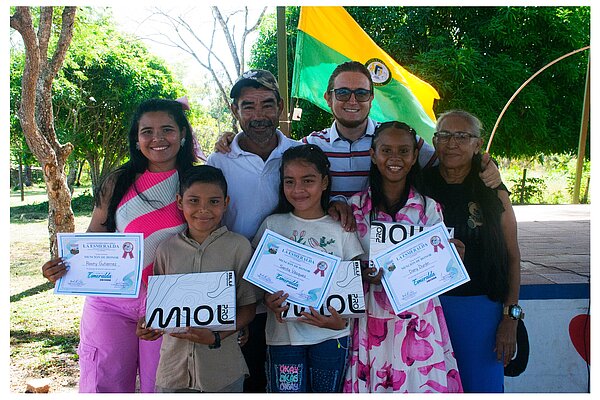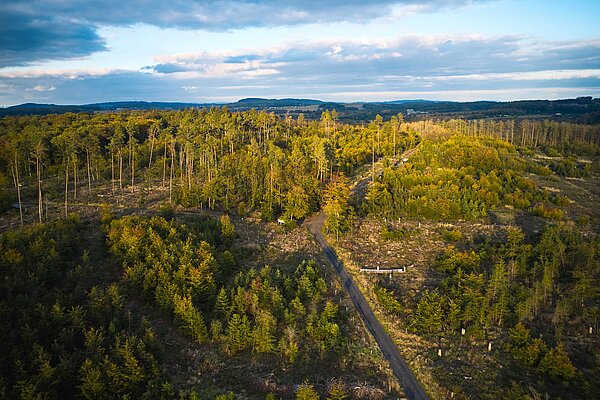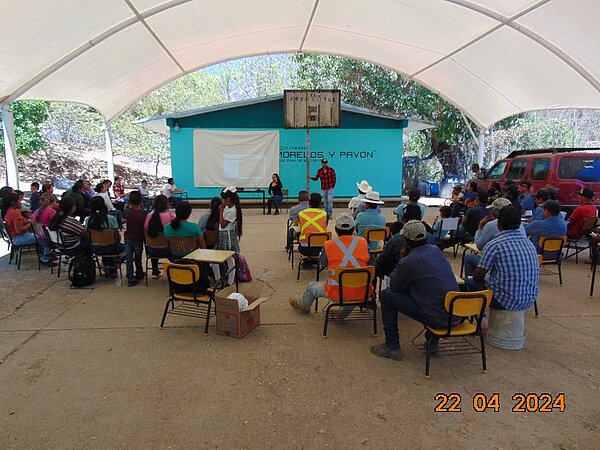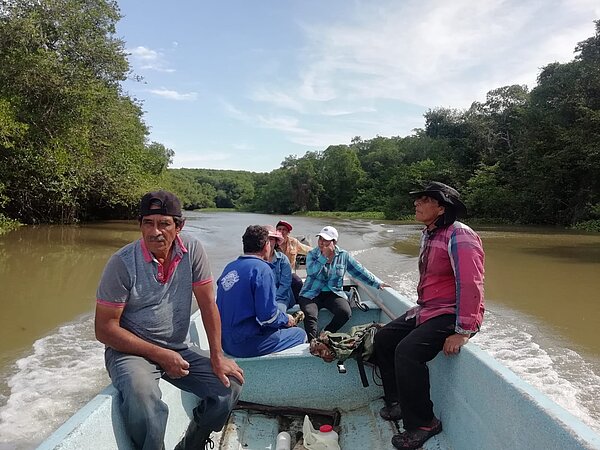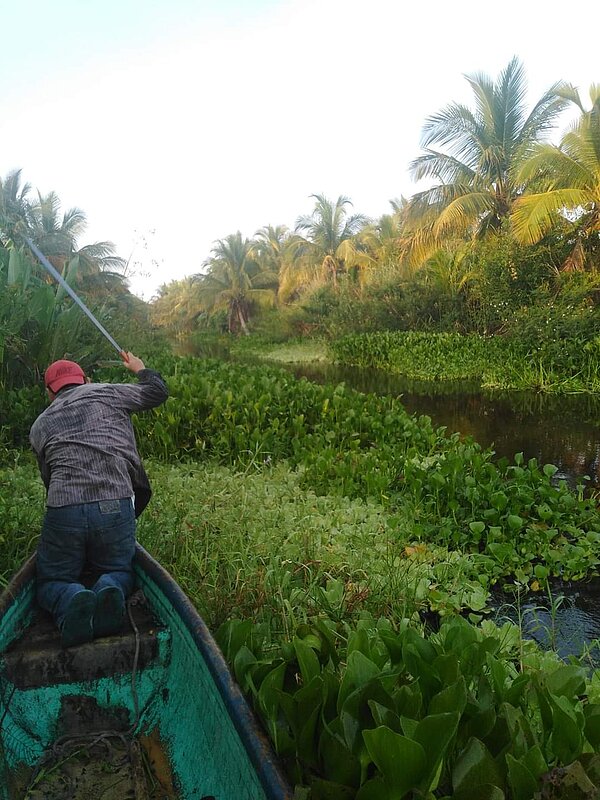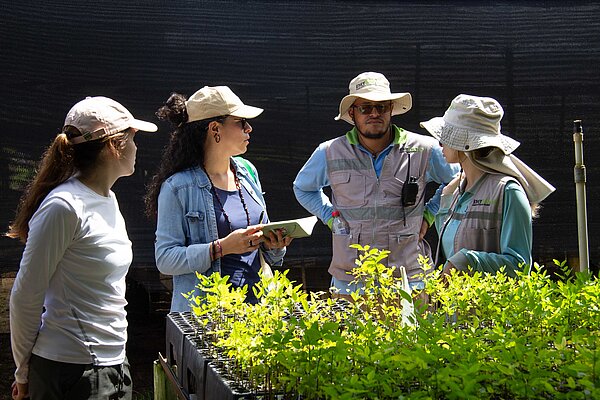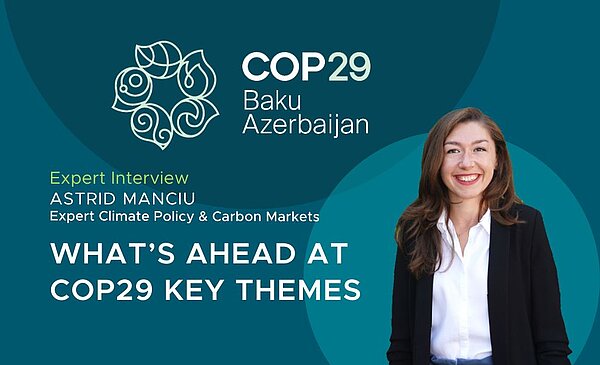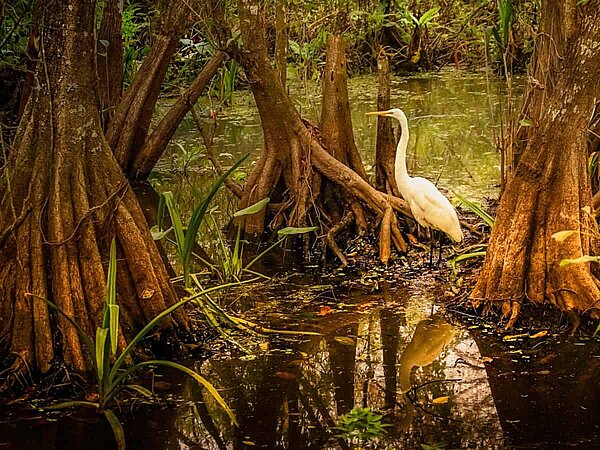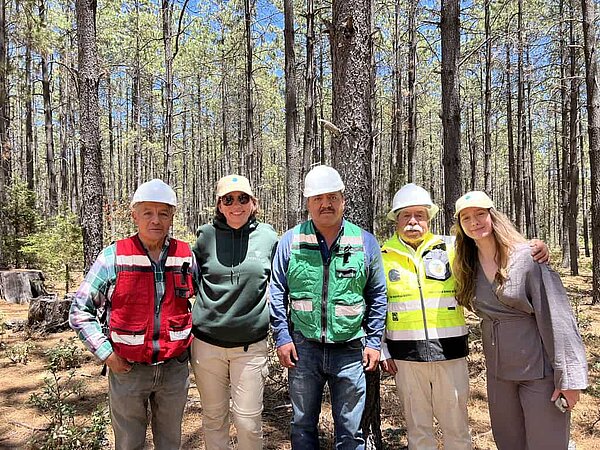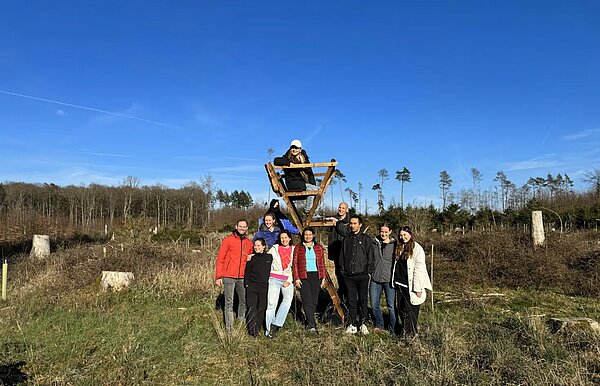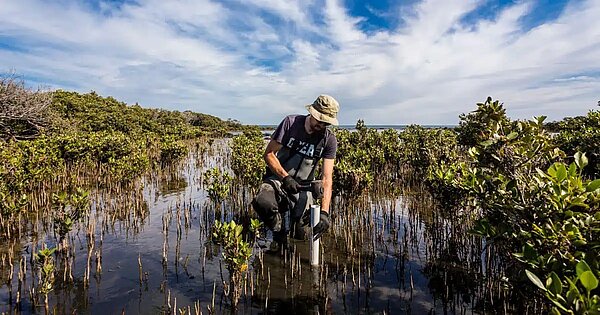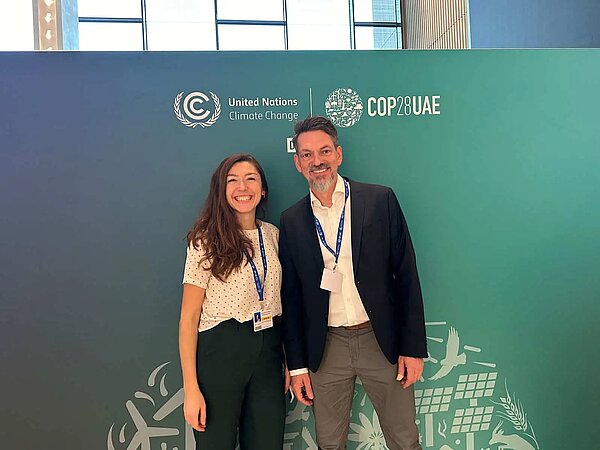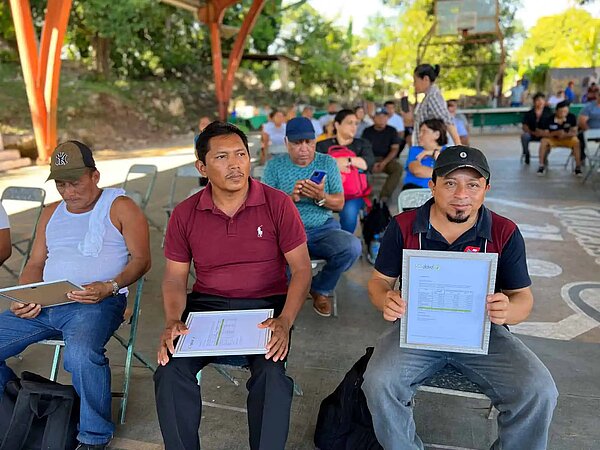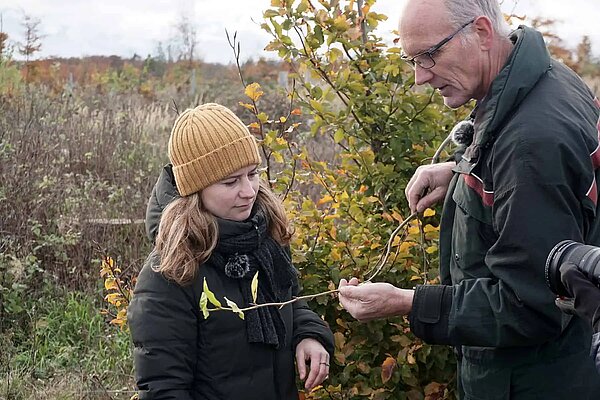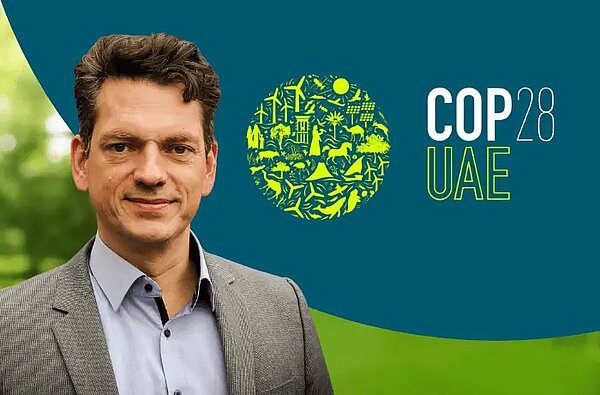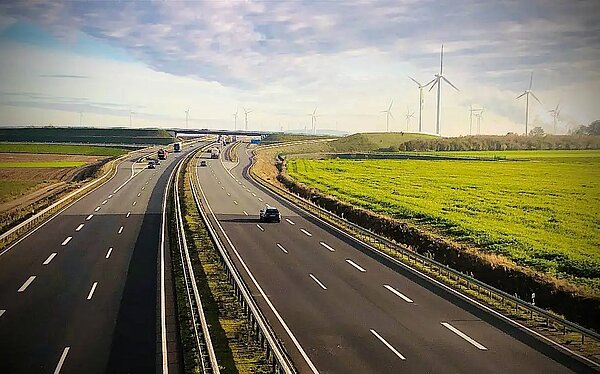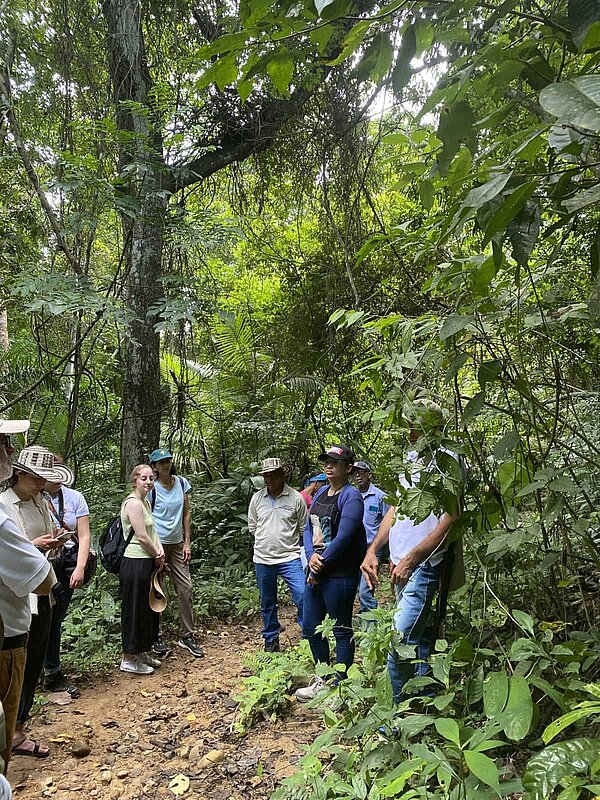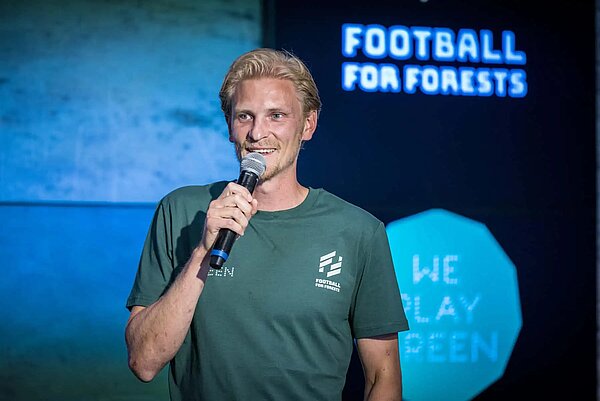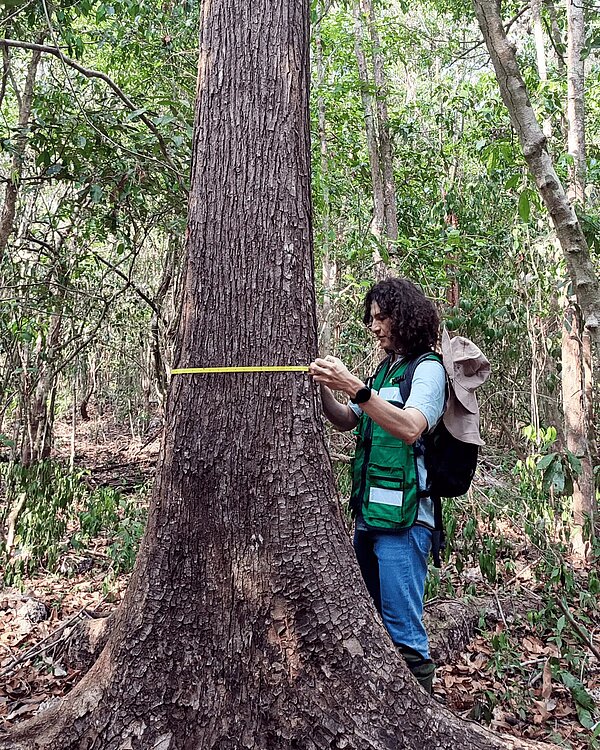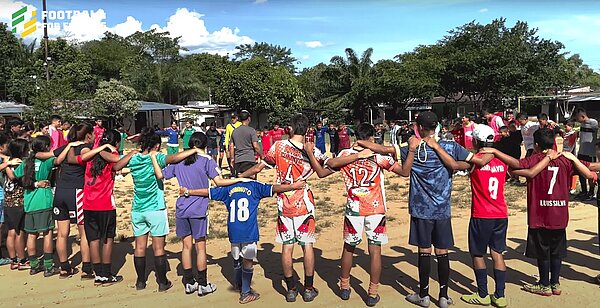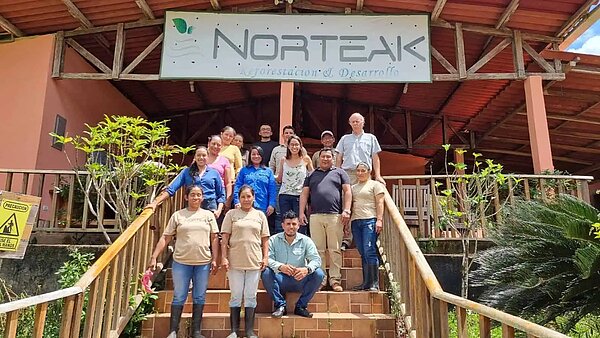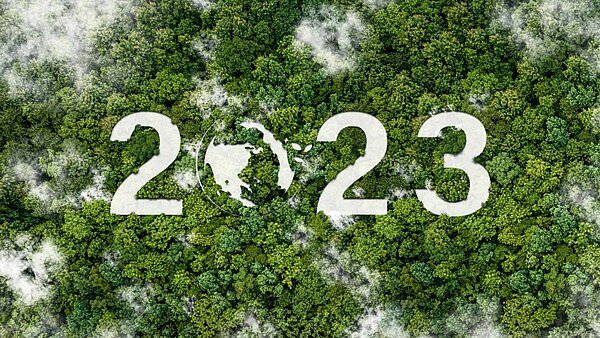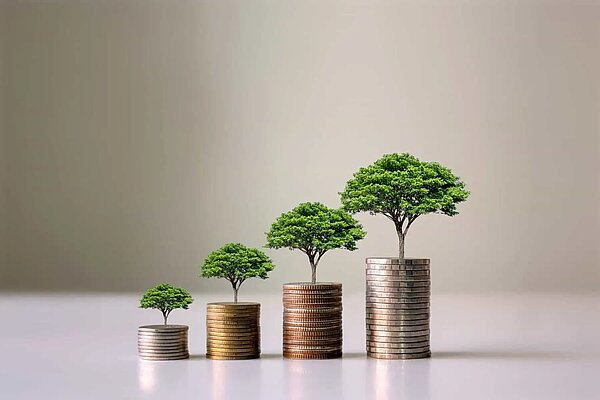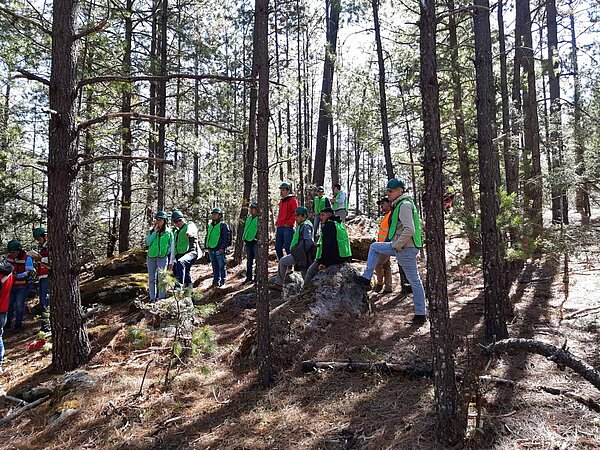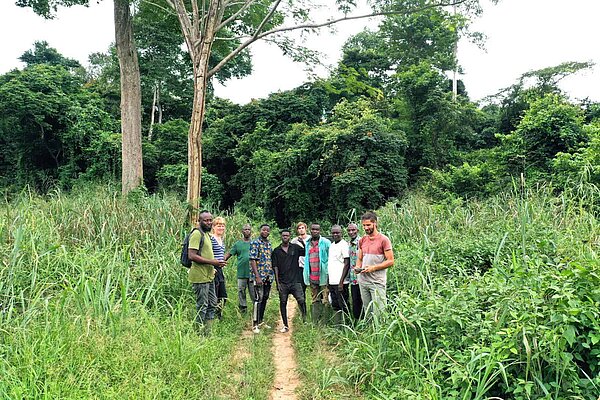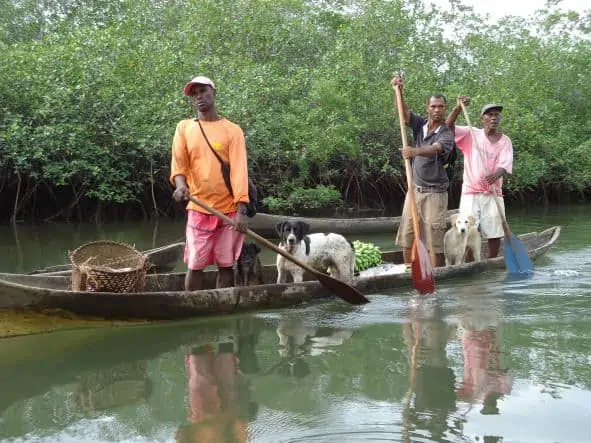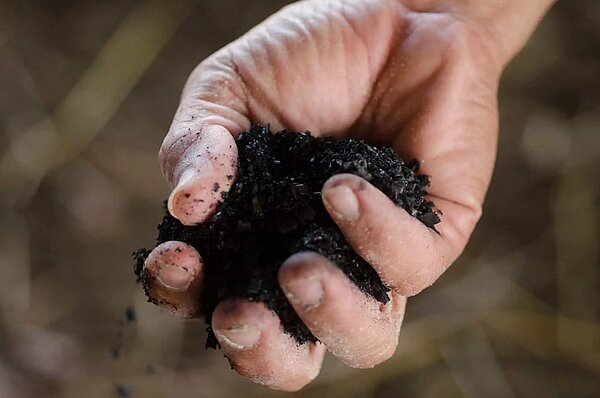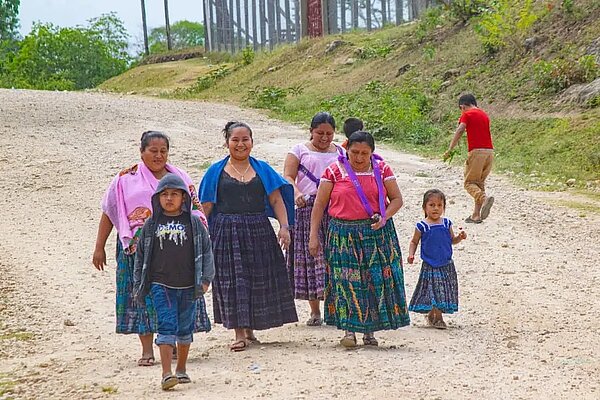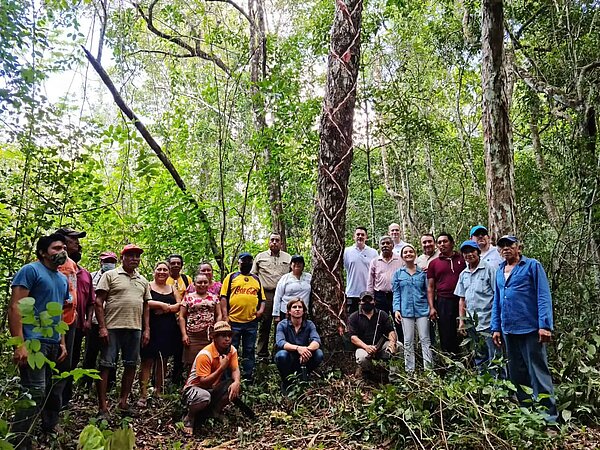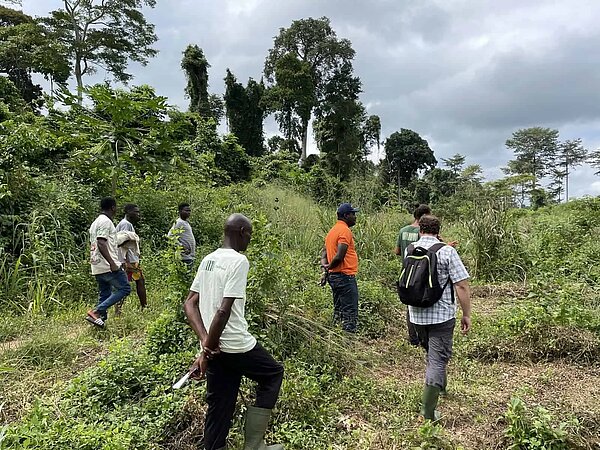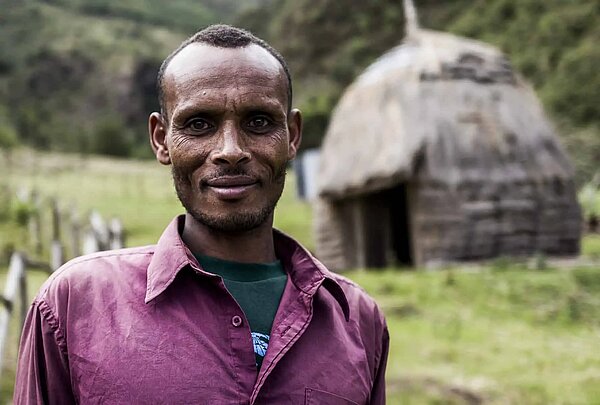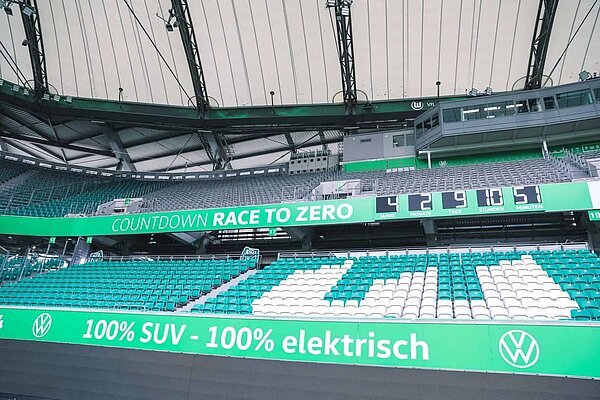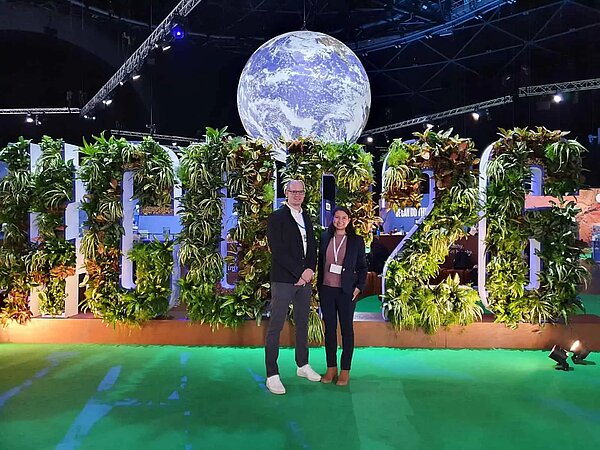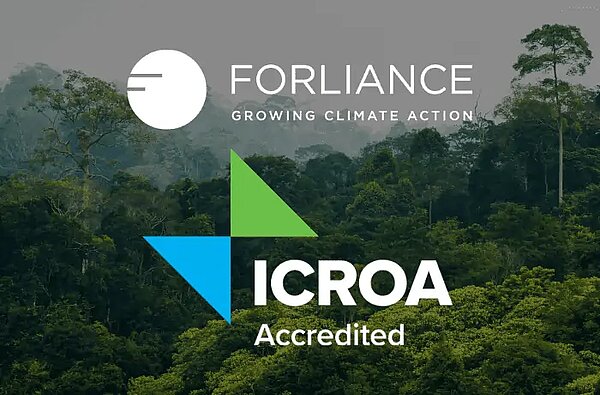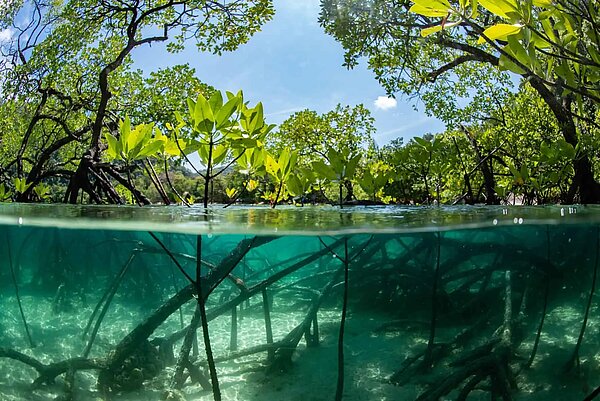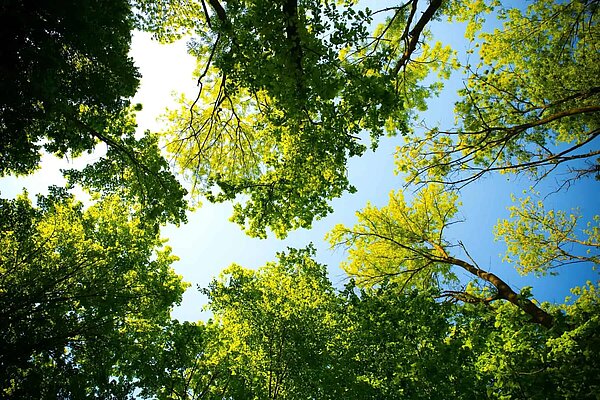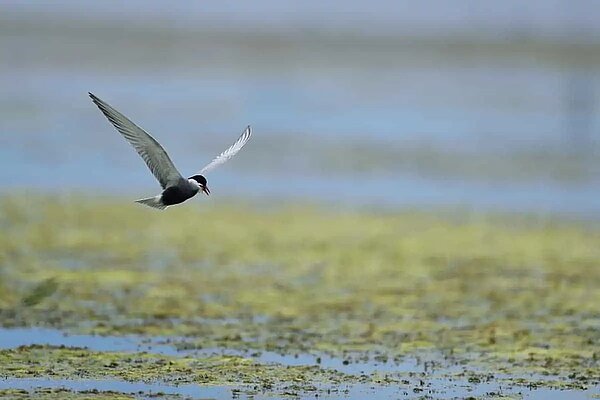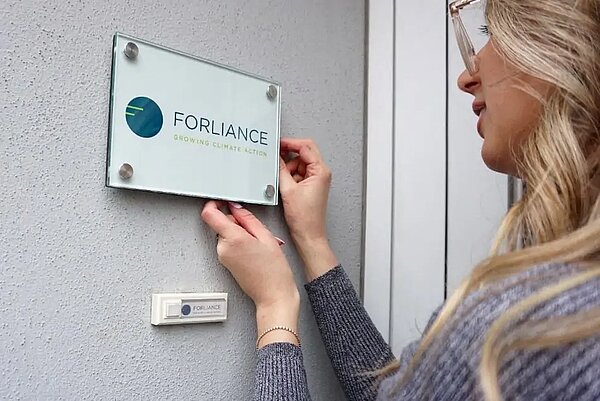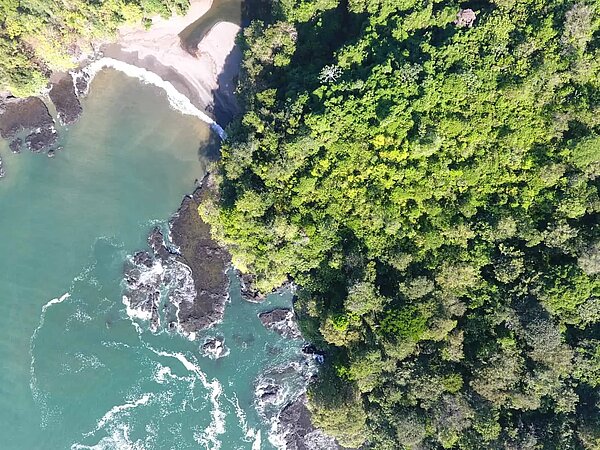Reddes Locales – Gestión forestal comunitaria sostenible en Guatemala
June 21, 2022
Actualizaciones de Proyectos
La silvicultura comunitaria ha existido en Guatemala desde tiempos antiguos. Los bosques y los árboles siempre han sido parte de las estrategias de subsistencia de las poblaciones locales y todavía juegan un papel esencial en las estrategias de sustento de las comunidades. Por esta razón, las comunidades guatemaltecas han trabajado activamente en la conservación de los bosques.

Silvicultura comunitaria – prácticas desde tiempos antiguos
La silvicultura comunitaria ha existido en Guatemala desde tiempos antiguos. Los bosques y los árboles siempre han sido parte de las estrategias de subsistencia de las poblaciones locales y todavía juegan un papel esencial en las estrategias de sustento de las comunidades. Por esta razón, las comunidades guatemaltecas han trabajado activamente en la conservación de los bosques.
Los bosques comunitarios se institucionalizaron en la década de 1990, cuando el gobierno reconoció la estrecha relación entre las comunidades locales y los bosques. Ahora forman parte de los programas de trabajo y estrategias de desarrollo del gobierno y la sociedad civil. Sin embargo, existen grandes obstáculos, como la pobreza y la profunda desigualdad que permea las zonas agrarias del país. Guatemala es uno de los países más pobres y desiguales de América Latina, con un 15% de la población en pobreza extrema.1 La pobreza es una de las principales causas del problema de deforestación de Guatemala, ya que fomenta la inversión en la agricultura comercial a gran escala. Anualmente, se deforestan 130,000 hectáreas, que inicialmente se convierten en pastizales antes de ser transformadas en áreas usadas para la agricultura industrial. En 1988, se estimaba que el 53% del país estaba cubierto por bosques, pero para 2010, esta cifra había caído al 34%.2

Paisaje en la región del proyecto Reddes Locales
Desarrollo de proyectos de carbono forestal – Hacemos que la acción climática suceda
Para restaurar el bosque y apoyar a las comunidades locales, en FORLIANCE estamos co-desarrollando un proyecto comunitario a gran escala en Guatemala – Reddes Locales. Junto con nuestro socio y la ONG local Calmecac, estamos creando bosques y ecosistemas intactos que impactan positivamente en nuestro clima, biodiversidad y bienestar humano. Como co-desarrolladores líderes, FORLIANCE llevó a cabo la consulta con las partes interesadas locales y organizó el financiamiento de este proyecto. Hemos conseguido una inversión de más de 1 millón de euros. El prefinanciamiento del proyecto Reddes Locales garantizará la implementación adecuada de las acciones requeridas.
El proyecto Reddes Locales aborda las principales causas de la deforestación en tres departamentos: Quiché, Huehuetenango y Alta Verapaz, y sus respectivos municipios en Guatemala. Este proyecto REDD+ será el primer proyecto en obtener triple certificación por VCS, CCB y como uno de los proyectos que opera dentro de un sistema de contabilidad jurisdiccional, como el marco de anidación REDD+ de Guatemala. Reddes Locales también debe cumplir con el Marco Metodológico del Fondo de Carbono del FCPF.
Objetivos del Proyecto Reddes Locales
El objetivo climático del proyecto Reddes Locales es recuperar tierras deforestadas y degradadas mediante la adopción de prácticas forestales sostenibles, el desarrollo de capacidades y la diversificación de productos forestales. Un aumento en la cobertura forestal y las reservas de carbono contribuirá a la reducción de emisiones de gases de efecto invernadero.

Las principales causas de la deforestación incluyen:
- la extracción ilegal de madera, leña y resina
- la expansión de la frontera agrícola
- la ganadería
- incendios forestales
- plagas y enfermedades
- el consumo local de madera
Para asegurar el uso sostenible del bosque y mejorar el sustento de las comunidades locales, estos son los tres componentes principales de nuestra estrategia:
- Recursos naturales y biodiversidad para asegurar el sustento de la población local
- Fortalecimiento institucional para una gobernanza efectiva
- Desarrollo económico y socioambiental sostenible
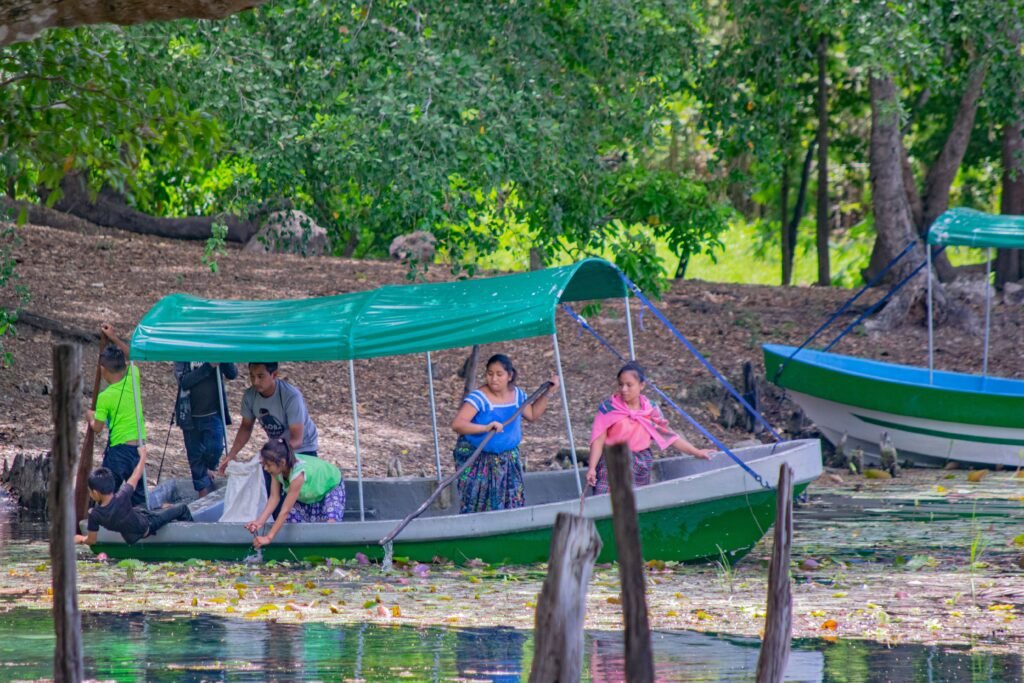
El Proyecto Reddes Locales se centra en mejorar el sustento de las comunidades locales
El área del proyecto es hogar de 21 comunidades mayas diferentes, algunas de las cuales hablan un idioma en peligro de extinción. A medida que las comunidades pierden su lengua, también suelen perder partes de sus tradiciones culturales que están ligadas a ese idioma, como canciones, mitos, poesía, remedios locales, conocimientos ecológicos y geológicos, y comportamientos lingüísticos que no son fácilmente traducibles.
Proteger a estas comunidades y asegurar su sustento es un objetivo importante del proyecto que nos toca de cerca. Las comunidades se beneficiarán de los servicios proporcionados por los municipios, que son entidades autónomas y órganos de gobierno.
Los beneficios esperados que se brindarán son:
- plántulas forestales
- viveros municipales y comunitarios
- asistencia técnica en agroforestería
- planes de manejo forestal
- asesoría sobre manejo forestal y de tierras sostenibles
- gestión integral en microcuencas
- manejo para la venta de servicios ambientales
- licencias para consumo familiar
- capacitación para líderes comunitarios en la prevención y manejo de incendios forestales
- manejo de plagas y enfermedades

El área del proyecto es hogar de 21 comunidades mayas diferentes.
Este proyecto fortalecerá:
- el sustento económico de las familias rurales
- la gobernanza local
- las actividades productivas alternativas
- la educación y habilidades técnicas
- la administración local
- la participación ciudadana
- la conciencia ambiental
- el capital social
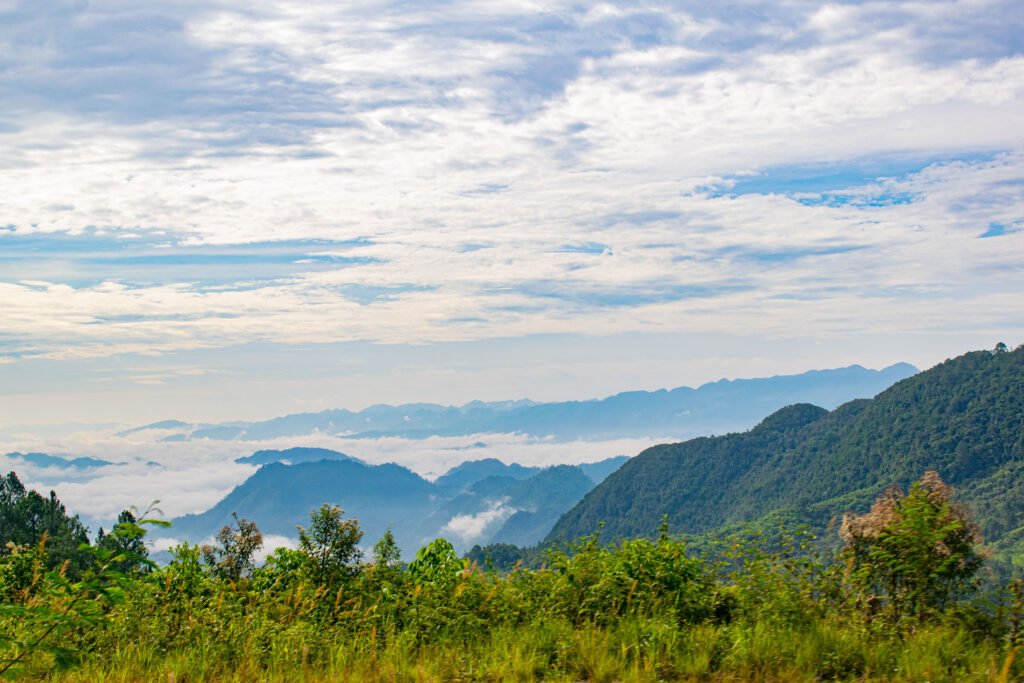
El proyecto Reddes Locales aborda las principales causas de la deforestación
Para garantizar la reforestación exitosa y sostenible, se implementará una estrategia para reducir la presión sobre los bosques naturales. Los factores clave de esta estrategia serán:
- el establecimiento de sistemas agroforestales
- plantaciones forestales
- sistemas silvopastoriles
Esto permitirá que los ecosistemas se recuperen, mantengan o mejoren los hábitats de biodiversidad natural y sus altos valores de conservación asociados con la estructura, composición y funcionalidad.
Monitoreo preciso y comunicación transparente
Pero no nos detenemos ahí. Trabajamos constantemente para mejorar nuestros proyectos y encontrar formas de maximizar el impacto positivo de estas iniciativas. Los datos precisos son un factor decisivo para lograr la gestión de proyectos más efectiva y eficiente. Al implementar nuestra Plataforma de Monitoreo y Comunicación en el proyecto Reddes Locales, podemos acceder a datos geoespaciales de manera remota y en tiempo real. La precisión en la recolección de datos nos permite reaccionar rápidamente a los cambios y patrones actuales que ocurren dentro del proyecto para obtener mejores resultados. La plataforma también nos permite comunicar todos los aspectos del proyecto de manera transparente.
¿Quieres saber más sobre nuestros proyectos climáticos forestales o estás planeando el tuyo propio?
Estamos aquí para apoyarte en la iniciación, financiamiento, creación y gestión de proyectos climáticos basados en la naturaleza con impacto. ¡Conectemos!
Fuentes:
1cf. Banco Mundial: 2009. Evaluación de la pobreza en Guatemala.
2cf. Fern: 2015. Protegiendo los bosques, mejorando los medios de vida. Silvicultura comunitaria en Guatemala.
